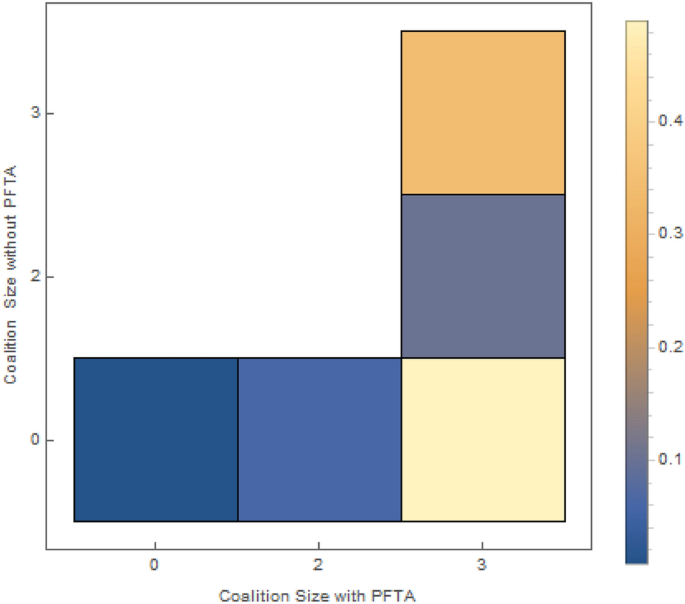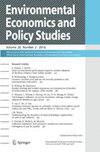Formation of climate coalitions and preferential free trade: the case for participation linkage
IF 2.3
Q2 ECONOMICS
引用次数: 0
Abstract
Abstract We study the endogenous formation of climate coalitions linked to a preferential free trade arrangement. In a multi-stage, micro founded strategic trade and participation game, coalition and fringe countries dispose of a discriminatory tariff on dirty imports as well as emission permits imposed on domestic producers. Permits are traded on a common permit market inside the coalition and on local markets outside, respectively. We provide an analytical solution for the general equilibrium and the policy game, in the three country case, while the participation game is solved by Monte Carlo simulation. Moreover, conditional probabilities are computed for the transition to coalitions of various sizes induced by free trade. Under various regimes analyzed, we find that preferential free trade can create strong incentives for building effective climate coalitions in terms of depth and breadth. This result even holds if fringe countries are given the option of trade cooperation as a retaliation devise and is driven by a favorable shift in the coalition’s terms of trade. As a policy implication, negotiations on international climate treaties and free trade arrangements should be interlinked.

气候联盟的形成与优惠自由贸易:参与联动的案例
摘要本文研究了与优惠自由贸易安排相关的气候联盟的内生形成。在一个多阶段、微观的战略贸易和参与博弈中,联盟和边缘国家处理对污染产品征收的歧视性关税以及对国内生产商征收的排放许可证。许可证分别在联盟内部的共同许可证市场和联盟外部的当地市场进行交易。在三国情况下,给出了一般均衡和政策博弈的解析解,参与博弈用蒙特卡洛模拟求解。此外,还计算了由自由贸易引起的向不同规模联盟过渡的条件概率。通过对各种制度的分析,我们发现优惠的自由贸易可以在深度和广度上为建立有效的气候联盟创造强大的激励。即使边缘国家被给予贸易合作作为报复手段的选择,并受到联盟贸易条件有利转变的推动,这一结果也成立。作为一项政策,国际气候条约和自由贸易安排的谈判应相互联系。
本文章由计算机程序翻译,如有差异,请以英文原文为准。
求助全文
约1分钟内获得全文
求助全文
来源期刊

Environmental Economics and Policy Studies
ECONOMICS-
CiteScore
4.80
自引率
0.00%
发文量
20
期刊介绍:
As the official journal of the Society for Environmental Economics and Policy Studies and the official journal of the Asian Association of Environmental and Resource Economics, it provides an international forum for debates among diverse disciplines such as environmental economics, environmental policy studies, and related fields. The main purpose of the journal is twofold: to encourage (1) integration of theoretical studies and policy studies on environmental issues and (2) interdisciplinary works of environmental economics, environmental policy studies, and related fields on environmental issues. The journal also welcomes contributions from any discipline as long as they are consistent with the above stated aims and purposes, and encourages interaction beyond the traditional schools of thought.
 求助内容:
求助内容: 应助结果提醒方式:
应助结果提醒方式:


